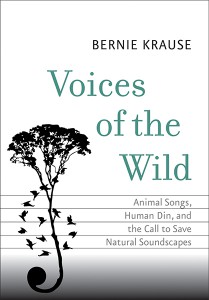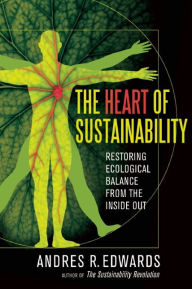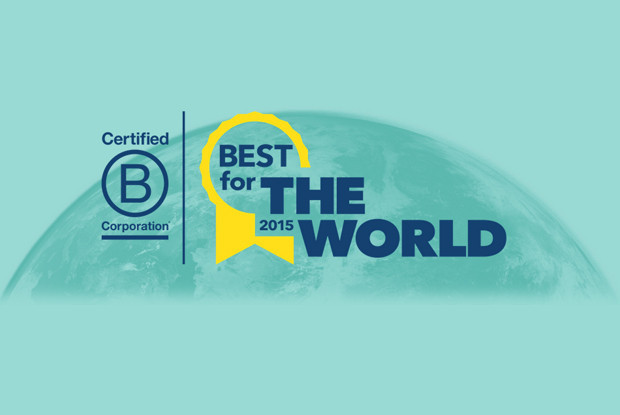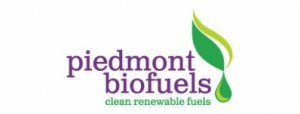The rapid rise of the global fossil-fuel divestment movement is a very promising and heartening sign of real progress.
A growing number of people are trying to “put their money where their mouth is” (i.e., where their values are). They want to stop giving their unintentional financial support to destructive, polluting companies and industries, such as the fossil fuel industry, and to shift their support over to clean, forward-thinking companies and industries that aim to have a positive impact on our world.
Putting your money where your mouth is might involve more than just being selective about which stores you go to and which products you buy. You could be unwittingly giving some of your money to companies you don’t want to support, through your accounts and investments: e.g., mutual funds, retirement accounts (IRAs, 401Ks), or any other stock-based accounts or investments. If you look at the list of company holdings that are part of your accounts’ portfolios, you might discover that Exxon and other oil/gas companies are in there, or Walmart, or Monsanto, or Koch Brothers-owned companies (also see the Buycott campaign/app), or McDonald’s or Coca-Cola or cigarette companies… Even if you don’t have any stock-based accounts of your own, there’s a good chance that your city, your college’s endowment fund, your church, or your pension provider invests in companies that don’t align with your values. Institutions like these are increasingly being confronted by local and national divestment campaigns.
 Fossil Free maintains this list of the hundreds of institutions (including colleges and universities, cities and counties, religious institutions, and foundations) that have committed to divesting from fossil fuels. They include: Rockefeller Brothers Fund; the City and County of San Francisco; Seattle, WA; Dane County, WI; Ann Arbor, MI, and many, many more. Countries committed to divest billions of dollars at the UN’s 2014 Climate Summit, and many world leaders have spoken out in support of the divestment movement; they include Desmond Tutu, Ban Ki-Moon, Christina Figueres, Mary Robinson, and even the President of the World Bank. People and institutions are divesting from fossil fuels for a variety of reasons. In addition to the values motivation, or to limit the political influence (lobbying budgets) of oil and gas companies, some are simply divesting because they feel that we’re approaching (or have already hit) “peak oil” and/or that fossil fuel reserves will soon become “stranded assets” and fossil fuel stocks are going to rapidly or drastically drop in value.
Fossil Free maintains this list of the hundreds of institutions (including colleges and universities, cities and counties, religious institutions, and foundations) that have committed to divesting from fossil fuels. They include: Rockefeller Brothers Fund; the City and County of San Francisco; Seattle, WA; Dane County, WI; Ann Arbor, MI, and many, many more. Countries committed to divest billions of dollars at the UN’s 2014 Climate Summit, and many world leaders have spoken out in support of the divestment movement; they include Desmond Tutu, Ban Ki-Moon, Christina Figueres, Mary Robinson, and even the President of the World Bank. People and institutions are divesting from fossil fuels for a variety of reasons. In addition to the values motivation, or to limit the political influence (lobbying budgets) of oil and gas companies, some are simply divesting because they feel that we’re approaching (or have already hit) “peak oil” and/or that fossil fuel reserves will soon become “stranded assets” and fossil fuel stocks are going to rapidly or drastically drop in value.
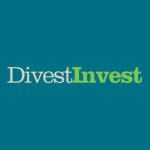 At the Divest-Invest site, you can pledge to divest from fossil fuels or to invest in clean stocks, and learn more about the issues and options. At Fossil Free Funds, you can do a search to find out whether your retirement plan/mutual funds have fossil free stocks. (Also see the links below.)
At the Divest-Invest site, you can pledge to divest from fossil fuels or to invest in clean stocks, and learn more about the issues and options. At Fossil Free Funds, you can do a search to find out whether your retirement plan/mutual funds have fossil free stocks. (Also see the links below.)
Whether or not you have any accounts that can be divested from fossil fuel or other harmful companies, you should think about investing some money in clean energy or other socially beneficial companies. If you want to switch your mutual fund or retirement accounts over to—or start a new account with—a “socially responsible investment” (SRI) fund, there are many to choose from. Going this route does not necessarily mean that you have to settle for a lower return on investment. SRI funds often perform as well as (or even better) than market averages. (See some performance stats here and here and here.) And socially responsible investing has become much more popular in recent years: U.S-based SRI assets jumped 76% between 2012 and 2014 and reached $6.57 trillion, according to US SIF. You can learn more about fossil-free funds and other SRI funds at the following sites:
A few funds that are fossil-fuel free (to date) include: Green Century Fund (both of their funds: Balanced and Equity), Green Alpha Funds, Parnassus Endeavor Fund, Calvert Investments’ Green Bond Fund, Portfolio 21 Global Equity Fund, and Pax World Global Environmental Markets Fund. A couple of fossil-fuel-free indexes have been developed, as well: FFIUS Fossil Free Indexes, and FTSE ex Fossil Fuel Index.
Note: In addition to the relatively new fossil-fuel-free criterion (which most SRI funds do not yet meet), there are a number of other environmental and social issues and criteria that SRI funds can screen for, in areas such as: pollution/toxics, nuclear power, defense/weapons, human rights, animal welfare, executive pay, labor relations, diversity, tobacco, alcohol, and many others. (When you click on the link above, select the Screening and Advocacy tab to find out how/whether various funds address each issue.) Note: It’s important that you look at each fund’s holdings and portfolio policies, as many SRI funds do include some companies that are widely seen as problematic (including oil and gas companies); some but not all of those funds explicitly try to influence and improve those companies’ policies through shareholder activism.
If you would like to have an investment advisor assist you in selecting a fossil-free or other SRI fund, these are a couple of advisory firms that I am aware of:
(You can also do a web search to find firms or advisors who specialize in SRI or clean energy investment or fossil-fuel divestment and who are also based in your area.)
 Another way to invest your money is to make a direct investment in a social impact venture, AKA a social enterprise. One place to find some social enterprises and funds that anyone can invest in is CuttingEdgeX. Among their current offerings (which are called Direct Public Offerings) are the RSF Social Investment Fund and the Calvert Foundation’s Community Investment note at Vested.org. For a list of some other funds that are available to everyone (but with a focus on food and farming-related enterprises), also see the top section of this page.
Another way to invest your money is to make a direct investment in a social impact venture, AKA a social enterprise. One place to find some social enterprises and funds that anyone can invest in is CuttingEdgeX. Among their current offerings (which are called Direct Public Offerings) are the RSF Social Investment Fund and the Calvert Foundation’s Community Investment note at Vested.org. For a list of some other funds that are available to everyone (but with a focus on food and farming-related enterprises), also see the top section of this page.
Some people are also able to invest their money in local, distributed solar projects in their area or elsewhere (on housing, schools, etc.). These are two platforms that allow people to do that—though unfortunately, for now, most of these platforms’ offerings are only open to California residents, due to current securities regulations (which could change in the future):
(Note: Having solar panels or a small-scale wind turbine installed on your own property is another good way to invest your money and get a solid return on investment.)
Most direct investment opportunities are only open to “accredited investors” (who, basically, are people wealthy enough to endure the risk of losing a considerable amount of money on investments: an accredited investor is currently defined as someone with an individual income of more than $200,000/year or a joint income of $300,000, for the past two years; or a net worth exceeding $1 million, individually or jointly with one’s spouse). If you are an accredited investor, there are all sorts of social enterprises you can invest in, e.g., through groups like these:
And there’s yet another way that everyone can make a difference with their dollars: Move your regular (checking/savings) accounts (as well as any credit card accounts) out of the huge, greedy, bailed-out banks (e.g., Bank of America, Citibank, Chase, Wells Fargo, etc.) that often fund giant oil and gas pipelines/projects, and move your accounts into a local credit union (credit unions are non-profit cooperative banks that share profits with their members) or a small community bank that won’t charge you ridiculous fees for basic transactions with your own money; won’t gamble with your money, your mortgage, and the economy for short-term gains; and that will give back to its members and your community. There are also a few banks that have an explicit social and environmental mission (and are certified B Corporations), such as:
The Sierra Club offers a credit card with Beneficial State Bank. (Most affinity cards are affiliated with the big, bail-out banks. This is one of the few that isn’t.)
Efforts are also underway to create Clean Energy Victory Bonds, which would be treasury bonds where all the funds raised go to support clean energy in the United States. Click that link to learn how you can support this initiative.
Other general resources for further information:
Related posts:
Green Business, Corporate Social Responsibility, Ethical Finance, and Sustainable Economies
Climate and Energy-Related Solutions and Resources
February 27, 2015


